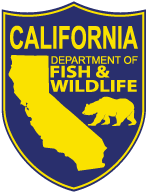Wildlife disease specialists with the California Department of Fish and Wildlife (CDFW) recently received confirmation that an adult bobcat died from the Eurasian strain of highly pathogenic avian influenza (HPAI) H5N1. This is the first detection of the virus in a wild mammal in the state.
The bobcat’s remains were collected in Butte County by CDFW on Dec. 23, 2022. Samples were submitted to the California Animal Health and Food Safety Laboratory System for preliminary testing. On Jan. 24, the U.S. Department of Agriculture’s (USDA) National Veterinary Services Laboratories confirmed the detection of avian influenza H5N1 in the bobcat. Elsewhere in the U.S. and Canada, periodic detections of Eurasian HPAI H5N1 have been made in mammalian carnivores including foxes, bobcats, raccoons and skunks.
The bobcat was wearing a GPS collar as part of a CDFW population study. The collar was equipped with a sensor that alerted biologists when the animal stopped moving for an abnormal amount of time. CDFW biologists located the remains and began an investigation into the bobcat’s cause of death.
HPAI H5N1 was first detected in wild birds in California in July 2022. To date, HPAI H5N1 has been detected in wild birds from 44 counties. The California Department of Food and Agriculture (CDFA) has also reported detections of HPAI H5N1 in domestic birds from 18 counties. Waterfowl and domestic poultry are especially vulnerable to the disease. The strain of H5N1 currently circulating in the U.S. and Canada has been causing illness and death in a higher diversity of wild bird species than during previous avian influenza outbreaks, affecting raptors and avian scavengers such as turkey vultures and ravens. Mammalian and avian predators and scavengers may be exposed to avian influenza viruses when feeding on infected birds. This bobcat was found in an area where HPAI H5N1 had recently been detected in a turkey vulture. Notwithstanding this detection, infection of wild mammals with avian influenza viruses appears to be relatively rare.
An informational flyer addressing frequently asked questions about avian influenza is available on CDFW’s website. Currently, the Centers for Disease Control considers the transmission risk of avian influenza to people to be low, but recommends taking basic protective measures (i.e., wearing gloves and face masks and handwashing) if contact with wildlife cannot be avoided. CDFW does not recommend people handle or house sick wildlife.
Practicing biosecurity is the most effective way to keep people, domestic poultry and pets healthy. Visit the CDFA and USDA websites for biosecurity information. Report sick or dead poultry and pet birds to the CDFA hotline at (866) 922-2473.
CDFW’s Wildlife Health Laboratory, in coordination with partners, continues to monitor wildlife for signs of illness and investigate mortality events. The public is encouraged to report dead wildlife using CDFW’s mortality reporting form. For non-urgent questions concerning wildlife, contact your local CDFW Regional Office or your local animal control service.





